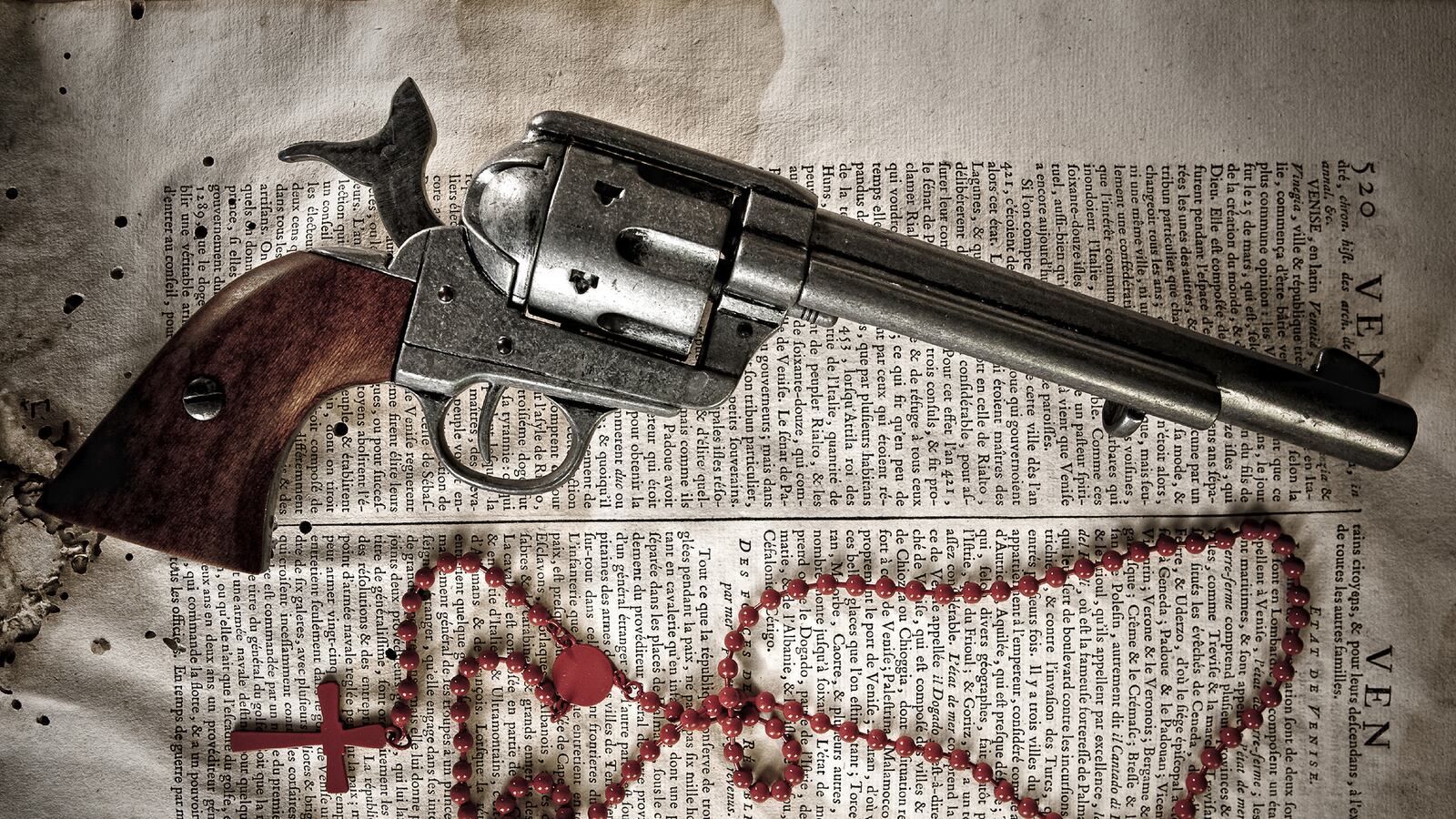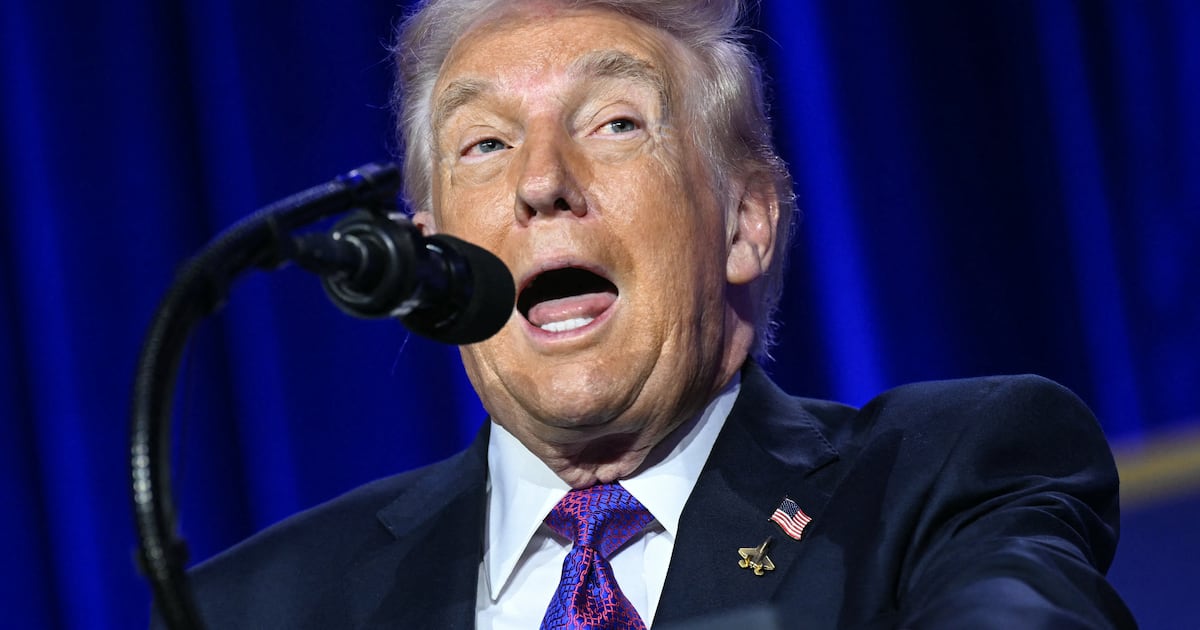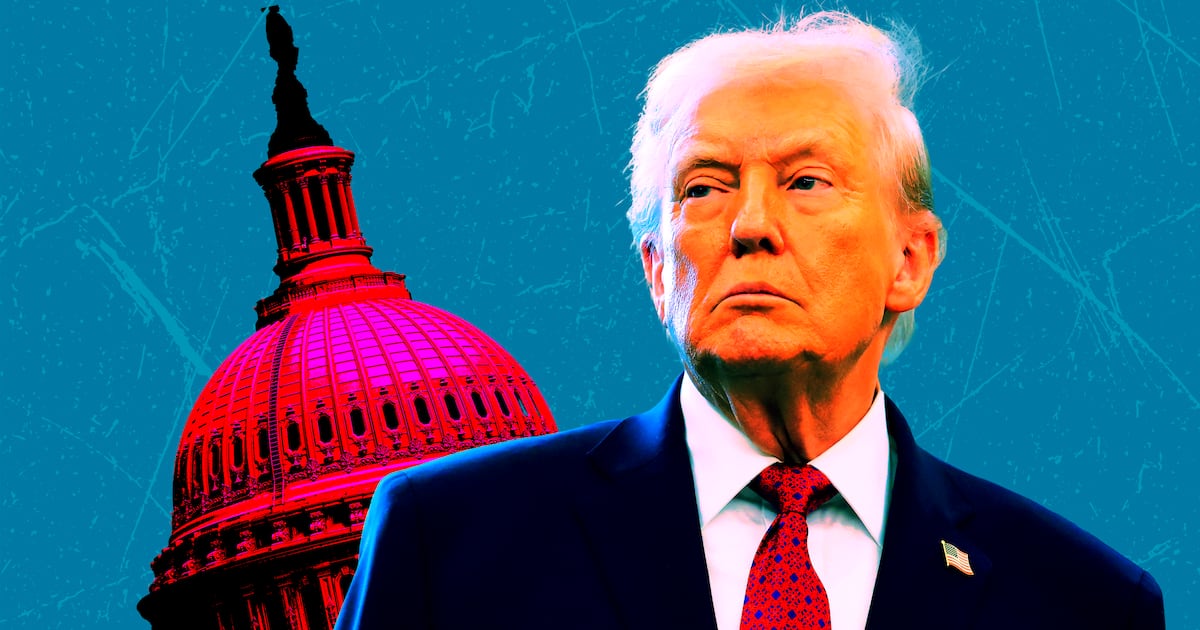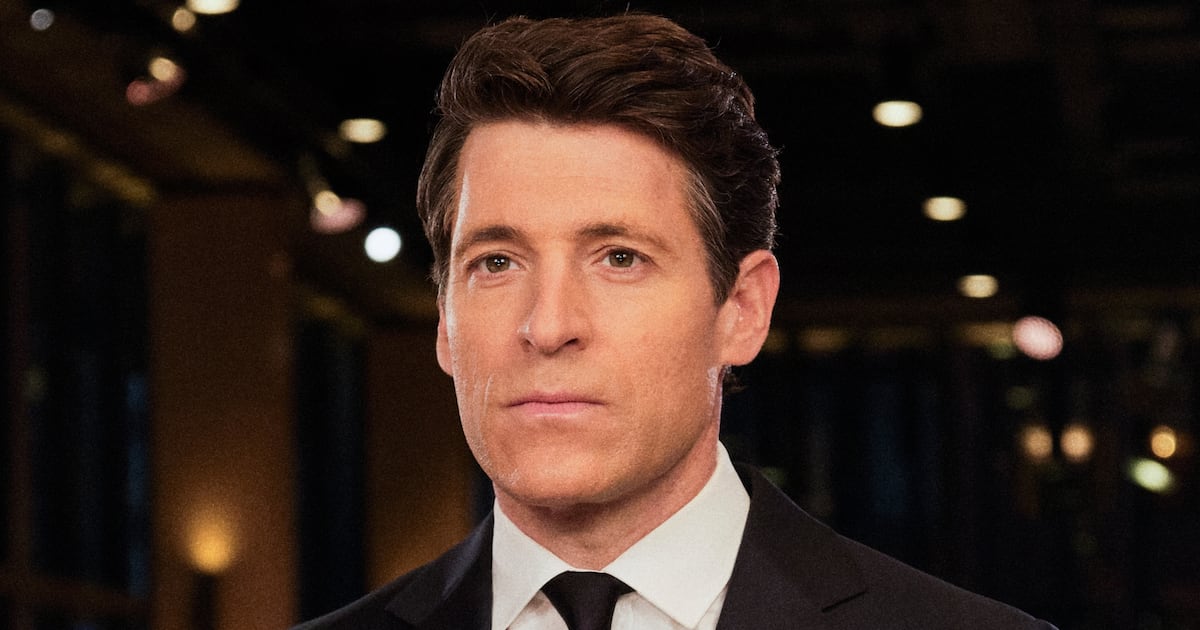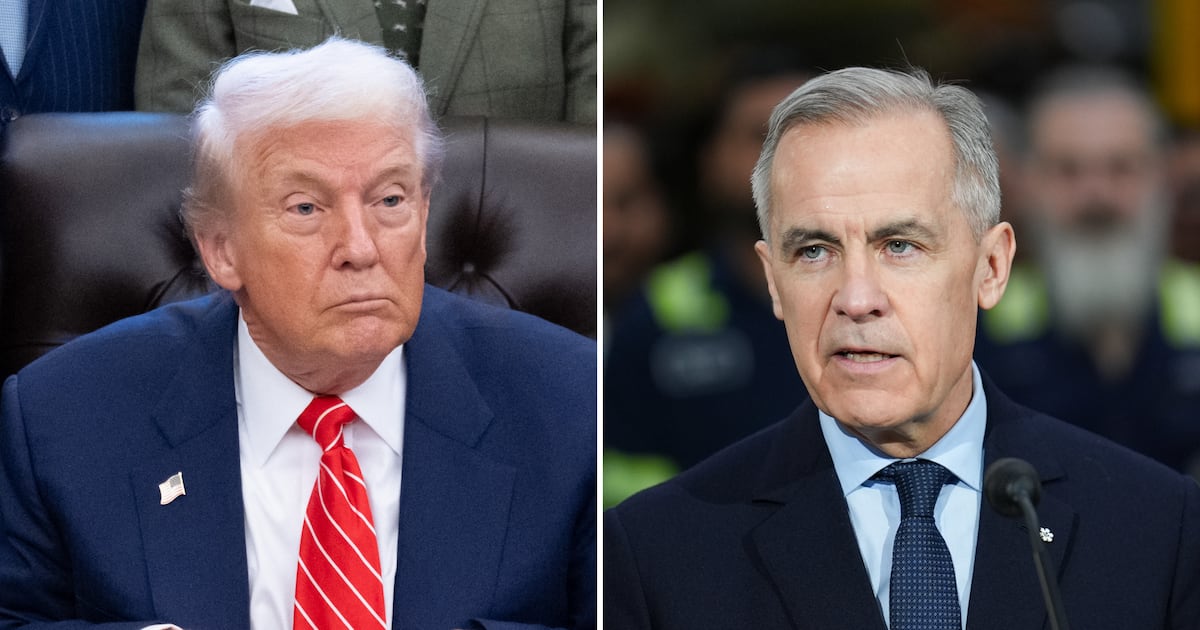God’s houses in Mississippi are under siege.
At least that’s the bill of goods some state lawmakers are selling with the Church Protection Act—a preemptive Dirty Harry-meets-Samson line in the sand granting worshippers a chance to pack heat while channeling the Holy Ghost.
“Worse actually comes to worse and in a religious service people have a right to defend themselves,” Larry Dean, pastor of the Bridgetown Baptist Church in Nesbit, Mississippi, told The Daily Beast. “Some people that are part of terrorist organizations or not have taken advantage of the fact that people in churches are unarmed.”
The 65-year-old preacher suggests that churches, with their large head count and sacred grounds, make both him and his faithful vulnerable.
“The reality is that we’re a soft target,” he said. “Anyone can carry a weapon at any time and do whatever evil they are going to do. Having a gun is one way to stop or restrain them.”
Soft target or sitting ducks, Dean faithfully believes today’s climate has called for fighting fire with firepower.
“It’s a great deterrent just to have that element of doubt in the mind of someone thinking of doing something violent,” he noted.
The legislation, which has passed the state’s House of Representatives and is slated for a vote in the Senate, comes less than a year after Dylann Roof, a 21-year-old man with white supremacist leanings, allegedly tried to start a race war by bursting into a prayer group’s meeting held at Emanuel African Methodist Episcopal Church in downtown Charleston, South Carolina, and mowing down nine innocents in a hail of bullets.
The Mississippi bill’s author, Rep. Andy Gipson, in a statement called the bill a response to the dangers he and fellow congregants face when they try to pray in peace. “Church should be a safe place, and by having a security team in place churches may be able to prevent senseless killing of innocent worshippers by those with evil motives.”
He said the Charleston incident had forced his hand.
“I wish we lived in a world where [the bill] were not necessary, but last year’s tragic church shooting should teach us the necessity of church security.”
Pastor Larry Dean is adamant that while the peril to his parish is minuscule, “it’s growing.”
“The reality is that now churches have to think differently than they once did,” he said. “If someone shows up to a service that nobody knows we must process thoughts differently now.”
So much for meeting a stranger on the road to Emmaus.
“It’s not that we’re hostile to them,” Pastor Dean said. “But I think your best bet at the least possible bloodshed is if people can defend themselves. The least likelihood of massive bloodshed is if someone shows up at your church armed, the best scenario is to somehow stop him.”
But John Altman, who has pastored for two years at Mississippi City United Methodist Church in Gulfport, Mississippi, takes a more pacifist approach.

“We talked about it this week: that the church is a weapons-free zone and people understand that’s our policy.
“We don’t believe in that,” he told us. “Jesus said ‘Put away your sword’ because he didn’t allow or encourage his followers to defend him with weapons.
“We’re not going to take lives,” he said. “Whether somebody is going to take ours, we’re not going to take theirs.
“It’s not part of Christian teaching.”
Altman, 56, is pointing to Matthew 26:52 where Jesus tried tamping down reprisals by proclaiming “Put up again thy sword into his place: for all they that take the sword shall perish with the sword…”
Altman admits, however, that he can’t be sure all of his 200 congregants are indeed showing up to church unarmed. “It’s an honor system,” he said. “We don’t search people.”
Guns or any other weapons in his congregation are sacrilege for Altman. “Thinking you need to use a weapon to defend the church misuses and misrepresents the teachings of Jesus,” he said.
He’d rather try disarming the would-be assailant with words. “We would talk to the person, but if somebody is set on killing you can’t stop them anyway.”
Any attacker targeting Altman’s church wouldn’t be turned around with the extra weaponry; the pastor says it would only add to the death toll. “Even with this kind of apparatus in place you would have just as many dead people or more.”
The worship security program bill grants any law-abiding Mississippian the right to undergo a background check and—as long as the religious member doesn’t abuse drugs and has a clean record—to sign up for a low-rung weapons training course. After that, they are then allowed to neutralize any killer confrontation. “The killing of a human being by the act… shall be justifiable,” the bill says, and is “authorized to use such force in securing a detaining the felony offender, overcoming the offender’s resistance, preventing the offender’s escape.”
The bill, which was slightly updated by the Senate Judiciary Committee, is fortified with supposed fail-safes that aim to make churchgoers “immune from civil action for damages arising” from an incident at the church.
That means as long as the churchgoer is “not the initial aggressor and is not engaged in unlawful activity, [he] shall have no duty to retreat.” Returning deadly force is not only advocated here, but justified.
Turning guns on an assailant or returning fire should only be used when there’s a clear and present danger, according to the proposed bill; but fails to clearly define it other than “protecting himself and others from bodily harm.”
In every case, the bill submits, the churchgoer with the permit “shall not be authorized to resort to deadly or dangerous means when to do so would be unreasonable under the circumstances.”
What’s more, the law doesn’t impose any restrictions on anybody sitting in the church pews who chooses to carry a licensed “loaded or unloaded pistol or revolver carried in a purse, handbag, satchel or similar bag or briefcase or fully enclosed case.”
This provision is what has some clergy members calling for a compromise.
J. Ligon Duncan III, chancellor of Reformed Theological Seminary in Jackson, Mississippi, says churches are going to have to post pro or con gun signs on the door to announce what side of the fence they’re on.
He stresses that there is good reason to “not allow conceal carry” in churches—not just for pure liability reasons, but because more bloodshed could spill. “Even if you have someone trying to protect you there’s a high likelihood there will be friendly fire,” he said.
When Duncan has given sermons at the pulpit he remembered some instances where somebody in the crowd would appear to be a threat.
There was the purple parishioner.
“He was painted purple from head to toe,” Duncan said. “He terrified everybody and it was quite unnerving.”
He said his deacons “got up and sat next to him and tried to be very welcoming to him,” he said of the matter, which ended peacefully.
And when a man dressed in fatigues came to his church armed with pearl-plated handguns, again the holy man turned to wholesome conversation. “He had some mental behaviors but he never did anything wrong,” he said. Again the deacons swooped in and “they didn’t make a big scene about it.”
Duncan said at church only experts should be packing while the rest can feel safe appealing to a higher authority. “Obviously guns in the hands of professionals is preferred,” he said. At his church many off-duty sheriffs are present if there was ever a bomb scare, but also as extra hands to walk grannies across the busy streets.
“We had our own security that assisted the church, so they could discourage people from taking vigilante action on their own. It works better.”
Already there has been strong resistance to the bill coming from various factions, including the Mississippi Police Chiefs Association, which is livid over the law’s lax requirements.
“By effectively dismantling Mississippi’s licensing system, this bill would block law enforcement who stop an armed suspect from confirming that he isn’t a violent criminal, severely mentally ill, or otherwise dangerous,” Ken Winter, executive director of the Mississippi Police Chiefs Association, told The Clarion-Ledger last month. “This bill would put law enforcement officers and all Mississippians directly in harm’s way.”
Also coming out swinging against the bill is Lucy McBath, who stood outside the Jackson, Mississippi, capitol building on Thursday.
Her son, Jordan Davis, was murdered at a Jacksonville, Florida, gas station on Nov. 23, 2012.
“Not a day goes by that I don’t think about my son Jordan’s death and how we can stop the gun violence that kills 91 Americans every day,” said McBath, Everytown Faith and Outreach Leader, said. “Passing HB 786 would be a step in the wrong direction—it would allow some violent criminals to carry concealed handguns without a permit and put Mississippi lives in danger.”

